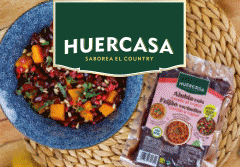Without abandoning the stone fruit category, the crisis in the sector is diverting breeders’ attention towards pip fruit
Fruit Today euromagazine talked to Frédéric García, from the French company Escande, who explained the reason behind this situation.
What have you observed regarding the stone fruit producers’ attitude (as to whether they continue to be interested in new varieties or, on the other hand, they prefer to continue working with the varieties they already have)?
Yes, in fact in 2017 apricots suffered from a very significant crisis. It seems that the race towards renewal has reached its end and we have started to anticipate this change. Our innovation and development strategy has been directed towards other fruits: apples, pears and American-Japanese plums.
What is the basic priority for the new plant varieties?
This year we are emphasising the development of apples, particularly two that are resistant to bitter pit: ANISE®, a yellow, Golden type, which ripens at the beginning of August and PIXIE®, a ‘washed’ red, with 80-100% colouring, which ripens at the end of August and has very good taste. Amongst them, the Gala Schnicored (covShniga®) which is a reference in Europe and the Golden Parsi (cov Da Rosa®) or the American red, Red Delicious Roat (cov in progress) stand out.
However, we are not abandoning stone fruit and this year we are proposing three new apricot varieties; in particular an ultra-early, self-fertilising variety, with good size and good taste quality. In plums, we are working with the important European producers in American-Japanese plums. The plantations are being designed with varieties that have been tested in France and Spain and for which we expect an important development over the next three campaigns.
Does the limitation of plant-protection products in Europe mark the progress of a company like yours, since producers are looking for varieties that need to be treated as little as possible?
Yes, this trend has become very obvious on the market and it will continue to rise. It is the reason we have been working in this area since 2000 (particularly with the Juliet apple), proposing varieties that are resistant to disease in a natural way.
Where are the company’s new challenges going?
Our working method consists of providing technical accompaniment for all our varieties. We maintain our own experimental fields and we prepare real technical itineraries. In this way, we can advise and minimise any production errors and reach the optimum agronomical potential for the variety. The productivity and calibre criteria are essential requirements, but the focal point of any of our varieties is the flavour.
Our business philosophy is completely integrated and we carry out the five steps in the chain: breeder, editor, nursery worker, producer and marketer, which allow us to provide technical help in a sector where cost reduction is essential and the choice of the correct variety is paramount.





















